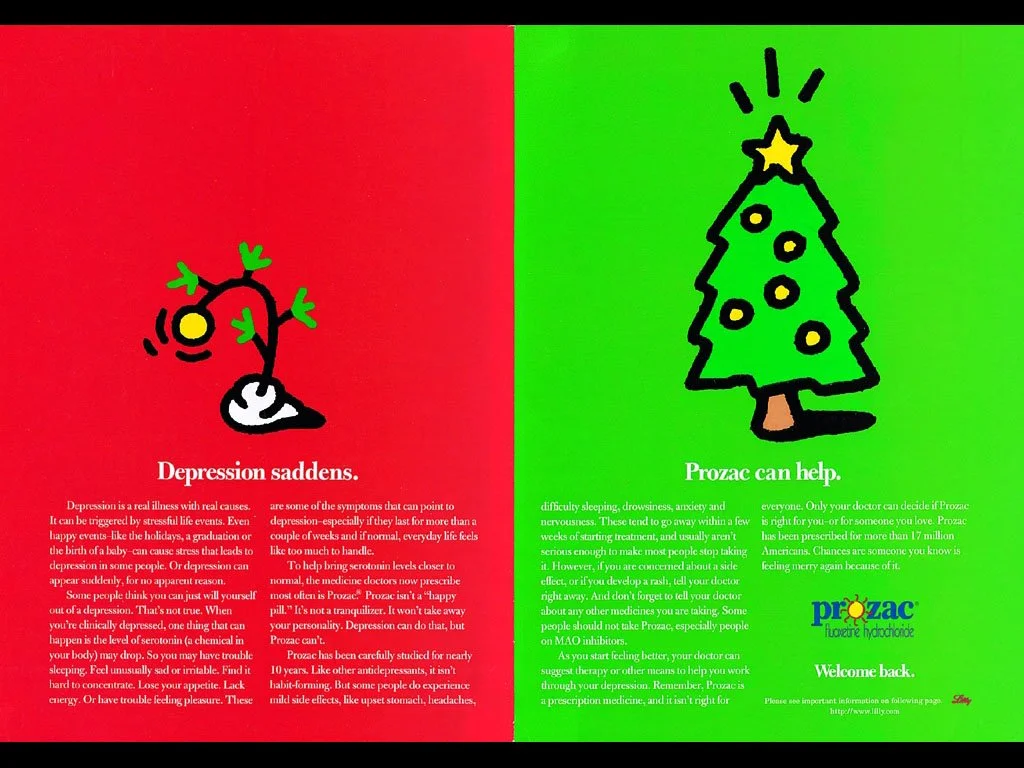Popping Bottles While Popping Pills and Experimenting
Note: I am not a mental health professional. I write this to normalize mental health among restaurant professionals. Here is my story.
Hello...my name is Jordanne...and I have anxiety/depression.
I know it sounds like I’m introducing myself to an AA group, but in this day in age, admitting you have a mental illness is like admitting you have a drug/alcohol problem. But it’s more of a thought problem–a monkey scratching in your brain reminding you how much you suck, how much you aren’t good enough, how much it’d be best if you didn’t exist. This monkey has been scratching away to the point where I have a lot of emotional scarring for like 25 years or so. I just didn’t do anything about it until I transitioned to working in restaurants.
How did working in restaurants make me–a self-proclaimed perfectionist, overthinker, and shy person–do anything about my mental health? More importantly, how in the world do I keep my neurotic self in check while hopping from table to table explaining dishes and bottles?
Let’s just say it’s a balancing act and one that requires introspection, friendship, science, and cooking creativity. But, most important of all, it involves accepting myself.
Admitting I Have a Problem
Although I went to therapy as an undergrad, I thought because my stress levels were low and steady, I didn’t need to continue. I was wrong. While working in an office (a perfect environment for that monkey in my brain to scratch away), I cried every two to three days in the stairwell. I didn’t seek help.
My stubbornness always got the best of me when it came to my mental health. Lack of money for therapy, along with my upbringing, didn’t help either. But I knew something was wrong. One day during family meal, a co-worker casually mentioned working with a therapist. I was surprised by how cavalier they were about it. At that point, I started saving money for a therapist and decided to look for one after I completed and passed my Certified Court of Master Sommeliers exam. I took the step forward to get help.
The “One Step Forward, Two Steps Back” Dance
Therapy sessions came and went at the beginning of 2019. But the tears, feelings of loneliness, and thoughts of being misunderstood by loved ones persisted. Although I tried to acknowledge my emotions and give them space, it was too much to deal with. I wanted to end my life. I didn’t.
I didn’t because my roommate–who was also a co-worker–heard me crying. They saw me. They listened to me. They told me I wasn’t crazy for feeling the way I did. I realized I wasn’t the only one dealing with anxiety/depression (something that seemed like a “problem” growing up, but more on that later). For once, I was normal.
A special bond exists among co-workers due to the number of hours you work together. It’s different for those working in restaurants. We sometimes spend 14 hours a day depending on long the shifts are and if we grab drinks afterward.
Most importantly, we bond over balancing our own emotional needs with the job of tending to others. We all have emotional issues to deal with; people working in restaurants tend to compartmentalize them and/or hide them better than others. Anthony Bourdain is, unfortunately, a perfect example of this (though the ending was heartbreaking). Anyway, that bond inspired me to find ways to spend time with my emotions and work with them–including taking medication.
The Importance of Being Informed
I’m not a big fan of taking medicine unless it’s necessary, but I never judge anyone else’s choice, like what Tom Cruise did to Brooke Shields. So as I was working on ways to spend time with my emotions during the summer of 2019, I looked into it. I was very concerned about how being on anti-depressants/anti-anxiety medication would affect being a sommelier–a role where I’m tasting wine everyday. After all, alcohol and medication are not the best combination.
I spoke with co-workers, friends, and family members who have been on meds. I read the side effects of the many different meds. My psychiatrist and I settled on a prescription. I started taking them two weeks after my 29th birthday.
As my psychiatrist and I discussed options before they prescribed the meds, I was transparent about my average alcohol intake. This included tasting wine, opening bottles, and shift drinks. I felt relieved they didn’t pass any judgment on me for taking meds and having a career that involved a liquid depressant. They told me that I would feel the side effects the more I took the medication and that I should listen to my body when I did feel those effects. I did. I still take the same dosage and drink about the same and still feel okay. Although I was nervous about taking them at first, it’s now part of my routine every day. It feels normal.
Self-Care in the Form of Kitchen Experiments
I used to think of self-care as getting massages, going on shopping sprees, and “enjoying life through the fine things”. That’s probably why self-care seemed unattainable before. Going through the emotions, I realize it’s the following: taking care of my body via workouts and water, having a “lazy day”, enjoying the quiet, and being creative. I exercised my creativity through kitchen experiments.
My latest flavor experiment: sourdough waffle grilled cheese and bacon sandwich with tots, BBQ sauce, and a double fist of Topo Chico with lime and Tokaji.
Since high school, I enjoyed spending days off making different sandwiches, egg dishes, and rice dishes. It was a good break from watching television. In an attempt to eat better in college, I bought my first cookbook to avoid ordering takeout or heating up microwave dinners. I also stress-baked triple-chip cookies. While working in an office, I brought in salad ingredients and made my lunch in the break room. Co-workers admired me for it. So, it’s no surprise that I have a career in restaurants.
I spend my weekends making restaurant-esque meals with my partner. Unlike 15 years ago, I get to integrate different wines, cocktails, or beer with these meals. This integration not only helps me better understand the flavors around me but also helps me press the reset button from being “on”. I can refresh from the pressure of making a good recommendation and just have fun.
Surf and turf with a loaded baked potato with Chono Carmenere from Chile
What’s the Point of All This?
Everyone has some degree of anxiety and depression. But everyone differs in when they realize they have it, how it manifests, and how to live with it. The underlying theme I hear regarding this includes feelings of fear, shame, and awkwardness.
When it comes to working in restaurants–an environment that values emotional intelligence just as much as factual knowledge, the balancing act of honoring my feelings and getting the job done is a delicate one. It’s one where I have to tell myself, “I recognize I'm annoyed with something, and I will work out after the shift” or “I know I have personal stuff to deal with, but I need to focus on what’s happening now” or “I’m not a complete idiot”. As a result, the combination of what I do outside of work to live with my anxiety and depression involves a mix of hobbies and medication.
I tried hard to “fight” this mental illness because having anxiety/depression can be perceived as weird (especially in Asian culture). Thankfully, hospitality professionals have started talking about having anxiety/depression and working with it while in service. That’s why I don’t feel weird admitting I have it and sharing my story. I still have a lot of work to do, but I can create great flavor experiences for others through wine and food and take care of myself.







